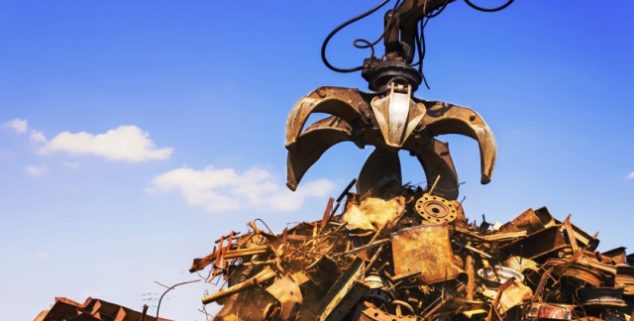Opinion
Proposed scrap metal recycling rules poorly thought out
 A big claw crane drops scrap onto a pile. (Photo: llucky78, via Shutterstock)
A big claw crane drops scrap onto a pile. (Photo: llucky78, via Shutterstock)Imagine if a government agency required nurses to endure the same costly and lengthy training as surgeons. Such overreach would result in fewer nurses and the demand for such skilled labor would reach a crisis.
This kind of government overreach should never occur. After all, government is expected to develop measured policies that strike the balance between protecting the public’s health and safety while fostering the supply of private services that have a public benefit.
While this extraordinary overreach is not occurring in the health care industry, it is when it comes to California’s regulation of the scrap metal recycling industry.
It is like regulators requiring doctors to purchase costly MRI equipment to examine a common sore throat when all that is needed is a tongue depressor.
The California Department of Toxic Substance Control (DTSC) has proposed new regulations for the chemical treatment of hazardous waste (also known as “metal shredder residue”) before it goes to a solid waste landfill.
As the owner of a metal recycling business, I share the view of most Californians that our environment must be protected. However, just like the health care industry that has different regulatory standards for nurses and surgeons, so should the recycling industry.
A vast majority of recyclers use simple physical cutting and separation tools to recycle scrap metal that can be safely shredded, transported and recycled without chemical treatment. In contrast, there are other recyclers uniquely qualified to process specific metal recycling residues that have no resale value that must be chemically treated before being disposed in a solid waste landfill.
So, for DTSC to impose significant permitting and costly regulations on recyclers that do not chemically treat metal residues makes absolutely no sense, especially when the regulations would require significant infrastructure and safety equipment that are not only cost prohibitive but for all practical purposes have no operational value.
It is like regulators requiring doctors to purchase costly MRI equipment to examine a common sore throat when all that is needed is a tongue depressor.
While DTSC’s diagnosis is concerned with hazardous waste making its way to a landfill, its prescription misses the mark and comes with consequences.
Today, thousands of Californians, sometimes referred to as peddlers, support their families by collecting scrap metal and selling it to small family-owned recycling centers such as mine. They are financially incentivized to help Californians recycle. If the proposed regulations force recycling centers to refuse certain metals or, worse yet, go out of business, these peddlers will no longer provide a valued service and abandon vehicles, kitchen appliances and other rusty metals that litter highways and neighborhoods will become more common.
What’s more, the cost of demolishing old buildings will increase when recycling old steel beams and iron rebar becomes less profitable, making replacement housing more expensive at a time when the state is facing a housing crisis.
Fortunately, there is an easy solution that will ensure that metal recycling centers continue their role of keeping waste out of neighborhoods. DTSC can simply clarify the proposed regulations to make a distinction between the “metal shredder aggregate” recycled by physical separation operations like mine and the chemically treated “metal shredder residue” processed by others.
DTSC’s first mistake was to develop draft regulations in private meetings without holding public hearings, denying small business owners like me the opportunity to offer public testimony. Another mistake would be for them to ignore a simple solution that will ensure that California continues to have a strong and vibrant recycling industry committed to processing aggregate metals responsibly.
Californians concerned about the environment and jobs can only hope that Gov. Gavin Newsom’s regulators are listening.
—
Editor’s Note: Robert W. Hall is president of the Pacific Auto Recycling Center in Lancaster.
Want to see more stories like this? Sign up for The Roundup, the free daily newsletter about California politics from the editors of Capitol Weekly. Stay up to date on the news you need to know.
Sign up below, then look for a confirmation email in your inbox.

Leave a Reply